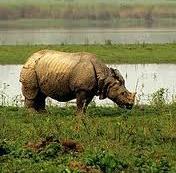 Critical wildlife habitats
Critical wildlife habitats
Critical Wildlife Habitat means such areas of national parks and sanctuaries that are required to be kept 'inviolate' for the purpose of wildlife conservation, as per a provision of the Forest Rights Act, 2006. In its preamble to CWH guidelines, the Ministry emphasised that it “is in no way intended to cause or force resettlement or relocation of Scheduled Tribes and Other Forest Dwellers from National Parks and Wildlife Sanctuaries”, in a bid to ease the concerns of activists. The new guidelines issued in May 2011 envisage a bigger role for the gram sabha, whose free informed consent must be given before any relocation is carried out. It also seems to ensure that forest rights are settled under the FRA before a CWH can be declared in an area. At present, not a single park and sanctuary in the country is notified as critical wildlife habitat (CWH), though the FRA has been in operation for over three years. Closer home, Bhimashankar sanctuary and Sagareshwar wildlife sanctuary in Sangli district of Maharashtra are in the process of declaring their critical wildlife habitats.
Global System of Trade Preferences
The Global System of Trade Preferences among Developing Countries (GSTP) is a preferential trade agreement signed on 13 April 1988 with the aim of increasing trade between developing countries in the framework of the United Nations Conference on Trade and Development (UNCTAD).
Organisation of Islamic Cooperation
The Organisation of Islamic Cooperation is an international organisation consisting of 57 member states. The organisation attempts to be the collective voice of the Muslim world (Ummah) and attempts to safeguard the interests and ensure the progress and well-being of Muslims. The OIC has a permanent delegation to the United Nations, and is the largest international organisation outside of the United Nations. The official languages of the OIC are Arabic, English, and French. It changed its name on 28 June 2011 from the Organisation of the Islamic Conference.
Compulsory licensing
Compulsory licensing is when a government allows someone else to produce the patented product or process without the consent of the patent owner. It is one of the flexibilities on patent protection included in the WTO’s agreement on intellectual property — the TRIPS (Trade-Related Aspects of Intellectual Property Rights) Agreement. The decision by the Indian Patent Office to issue a compulsory licence (CL) to Natco for Bayer's anti-cancer drug Sorafenib means the drug will now be available at Rs 8,800 per month, a 97 % reduction from Bayer's Rs 2.8 lakh. Globally, people working on public health and access to medicines have welcomed the decision.
Integrated Guided Missile Development Program
The Integrated Guided Missile Development Program was an Indian Ministry of Defence program between the early 1980s and 2007 for the development of a comprehensive range of missiles, including the intermediate range Agni missile (Surface to Surface), and short range missiles such as the Prithvi ballistic missile (Surface to Surface), Akash missile (Surface to Air), Astra missile (Air to Air), Trishul missile (Surface to Air) and Nag Missile (Anti Tank). The program was managed by Defense Research and Development Organization in partnership with other Indian government labs and research centres. One of the most prominent chief engineers on the project, Dr. Abdul Kalam went on to become the President of India. After the third test of Agni-3 on 7 May 2008, the DRDO announced that it will be closing the IGMDP program formally since most of the missiles in the program have been developed and inducted into Indian armed forces
Coffee Club (Uniting for Consensus)
Uniting for Consensus (UfC) is a movement, nicknamed the Coffee Club, that developed in the 1990s in opposition to the possible expansion of the United Nations Security Council. Under the leadership of Italy, it aims to counter the bids for permanent seats proposed by G4 nations (Brazil, Germany, India, and Japan) and is calling for a consensus before any decision is reached on the form and size of the Security Council.
East Asia Summit
The East Asia Summit (EAS) is a forum held annually by leaders of, initially, 16 countries in the East Asian region. Membership expanded to 18 countries including the United States and Russia at the Sixth EAS in 2011. EAS meetings are held after annual ASEAN leaders’ meetings. The first summit was held in Kuala Lumpur on December 14, 2005. India is a participant of East Asia Summit. Read more about ASEAN.
sources
1. http://en.wikipedia.org/wiki/Uniting_for_Consensus
2. http://www.wto.org/english/tratop_e/trips_e/public_health_faq_e.htm
3. http://en.wikipedia.org/wiki/Organisation_of_Islamic_Cooperation
4. http://en.wikipedia.org/wiki/Global_System_of_Trade_Preferences_among_Developing_Countries
5. http://www.thehindu.com/news/national/article1991329.ece
6. http://articles.timesofindia.indiatimes.com/2011-05-22/pune/29570711_1_critical-wildlife-habitat-cwh-parks-and-wildlife-sanctuaries





0 comments: